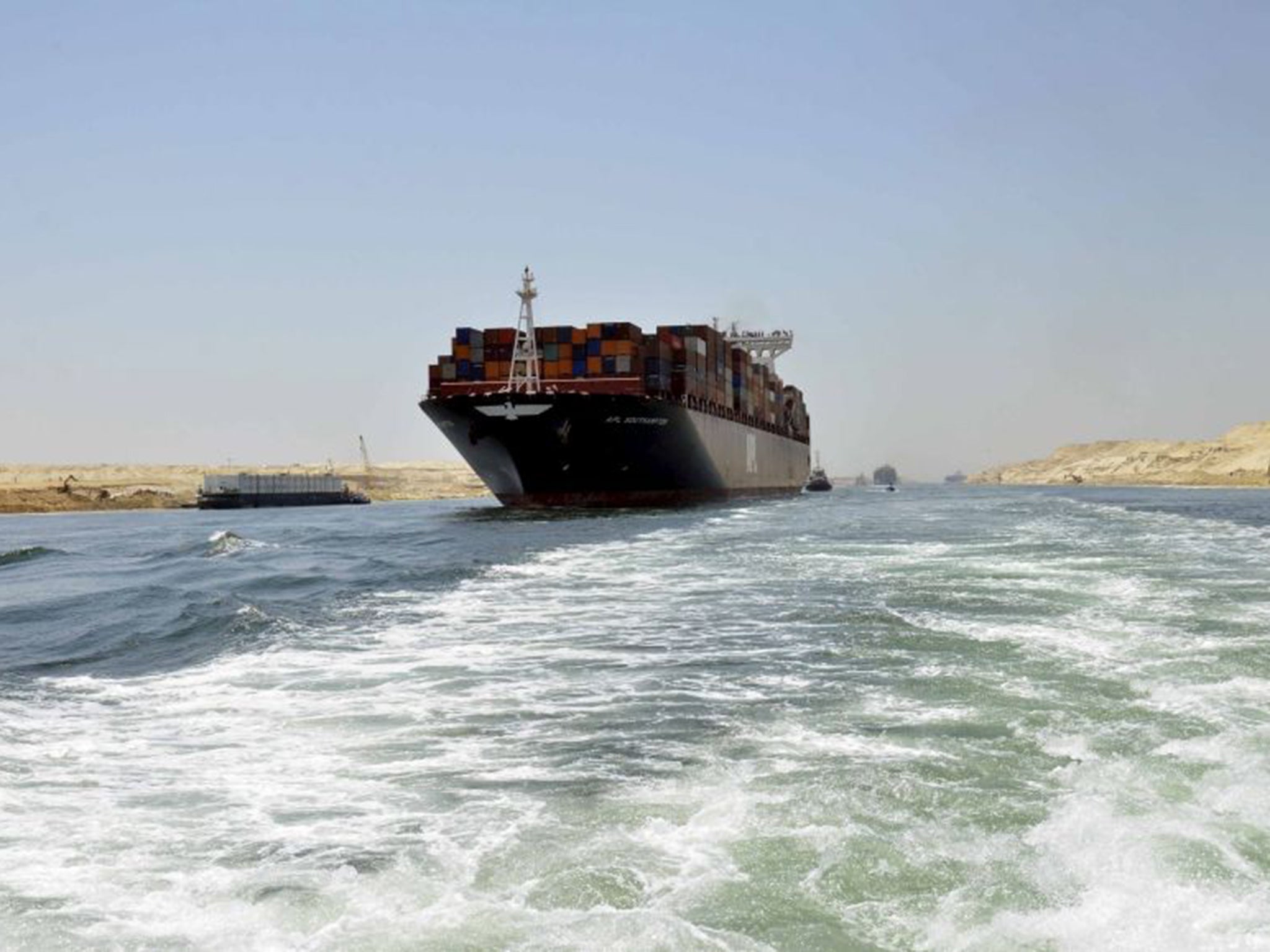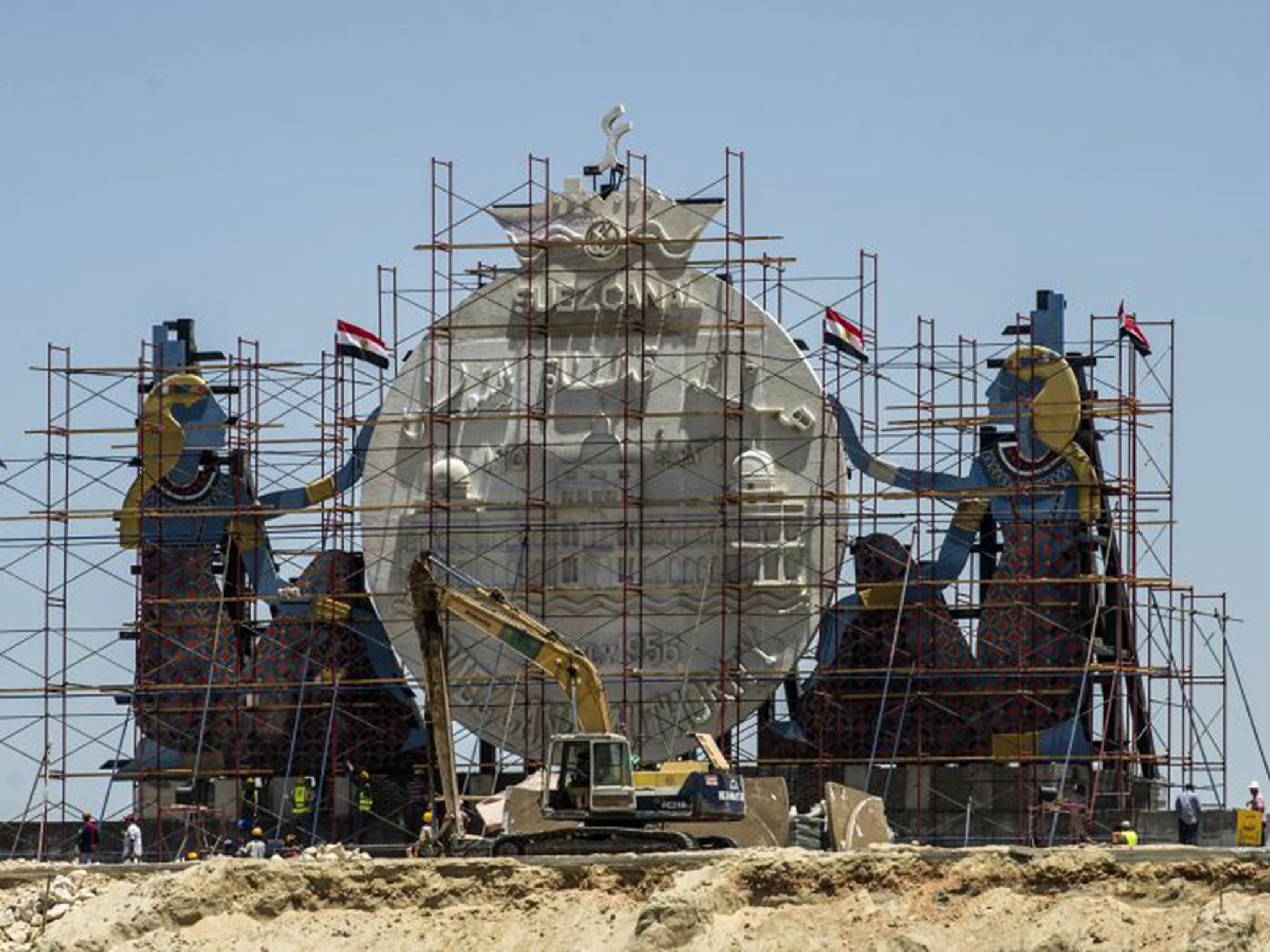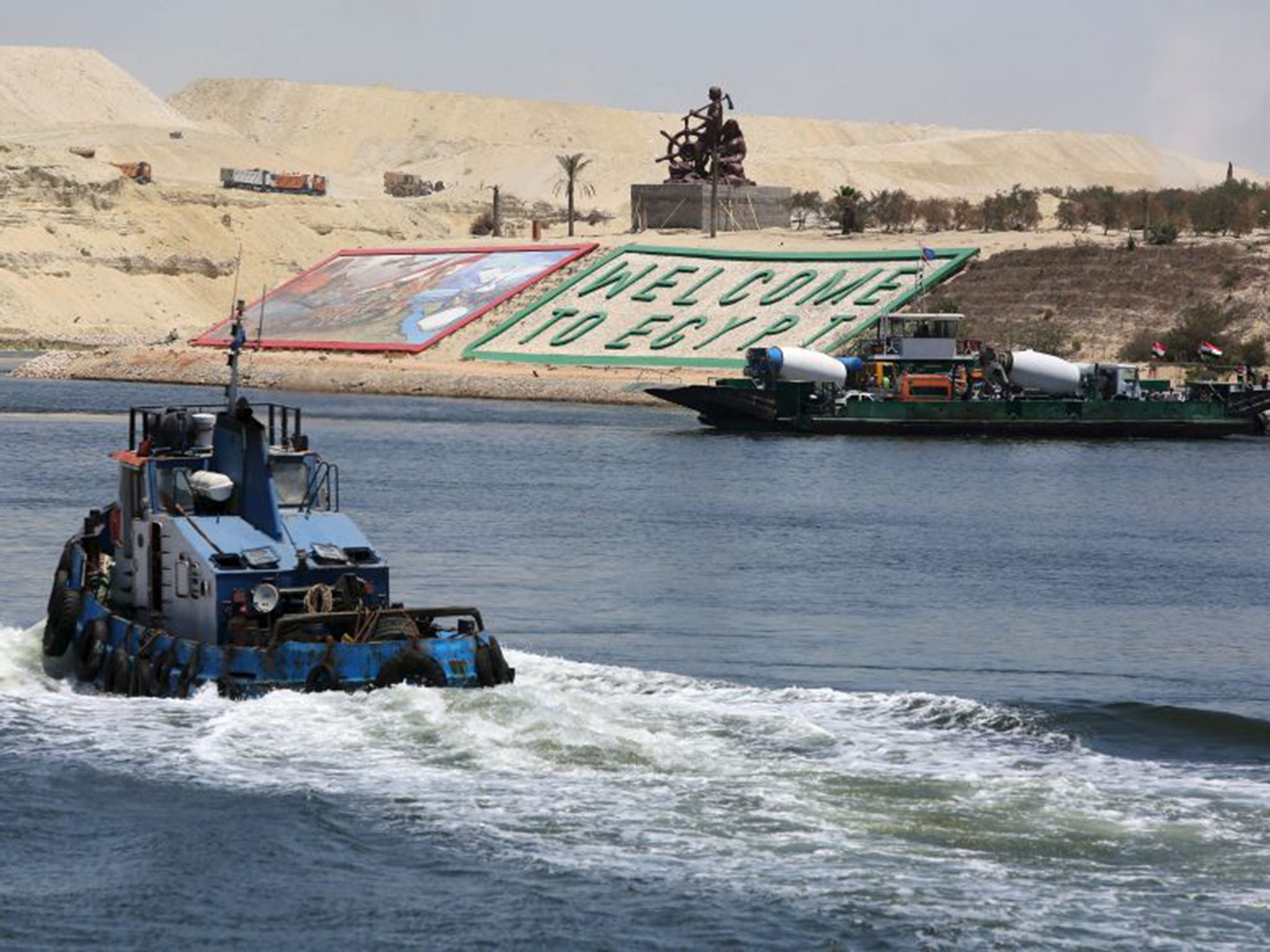VIPs gather for opening of second Suez Canal - but doubts linger over security
The canal is a symbol of national pride, beyond its economic capabilities, but is it really needed?

Your support helps us to tell the story
From reproductive rights to climate change to Big Tech, The Independent is on the ground when the story is developing. Whether it's investigating the financials of Elon Musk's pro-Trump PAC or producing our latest documentary, 'The A Word', which shines a light on the American women fighting for reproductive rights, we know how important it is to parse out the facts from the messaging.
At such a critical moment in US history, we need reporters on the ground. Your donation allows us to keep sending journalists to speak to both sides of the story.
The Independent is trusted by Americans across the entire political spectrum. And unlike many other quality news outlets, we choose not to lock Americans out of our reporting and analysis with paywalls. We believe quality journalism should be available to everyone, paid for by those who can afford it.
Your support makes all the difference.Sunlight sparkles on the water as diggers and workers are still hard at work clearing the banks of the new Suez Canal channel. The odd plume of dust is kicked up into the hot summer air as the touring boats round the various statues being erected on the canal’s banks: Isis (the goddess of protection), a shiny silver metal globe and a 20ft-high rendering of a worker digging the soil.
At one point, another ship passes ours as its crew hold up two fingers in a symbol of peace and one holds a large Egyptian flag aloft. To Egyptians, the Suez Canal is a symbol of what their country is capable of – and a mega-project of this magnitude has stoked nationalist sentiment as a time when Egyptians hope to see the end of four years of economic turmoil. The head of the Suez Canal Authority, Admiral Mohab Mamish, described the Suez Canal as “a gift from the Egyptian people to the rest of the world” at a press conference following the tour of the new site.
The project has moved several hundred million cubic metres of soil in order to create a 35km (22-mile) second channel allowing parallel traffic through the Suez Canal. About 37km of existing waterways were also dredged to create extra space for traffic. Faster crossing times, according to the Egyptian government and the Suez Canal Authority, will increase traffic through this key waterway linking the Red Sea to the Mediterranean Sea, part of a network of ambitious new economic projects designed to revitalise Egypt’s economy.

President Abdel Fattah al-Sisi had promised that the project would be completed within a year of August 2014, rather than the initially announced three, and using only Egyptian companies. The Egyptian government was later forced to send in a consortium of companies from the Netherlands, Luxembourg and Kuwait to have the dredging of the new channel completed to schedule. Drawing on the intense nationalist sentiment that surrounds the Suez Canal, the project was also financed with £5bn in public funds, raised via investment certificates that sold out in just eight days. The public have been told that their investment will be repaid in quarterly instalments, with a final settlement in four years.
The Suez Canal remains a symbol of national pride, beyond its economic capabilities. Inaugurated in 1869 by Isma’il Pasha, the lavish ceremony was initially intended to include a performance of Verdi’s opera Aida – due to be repeated at the new channel’s inauguration on Thursday. In 1956 President Gamal Abdel Nasser’s nationalisation of the canal snatched its control away from the British, forcing him later to fend off an attempted invasion by the Israelis, British and French that was designed to remove him from power. Nasser emerged victorious and, ever since, the canal has been seen as a symbol of Egyptian nationalism.
“The canal is a symbol of the strategic importance of Egypt, the country built its importance on it. For many, it’s why so many powers take an interest in this country, it’s a kind of leverage,” says Timothy E Kaldas of the Tahrir Institute for Middle East Policy. “In a lot of respects, Sisi is trying to channel the charisma and memory of Nasser as a strong military political leader, one who can deliver to the country.”
Visual reminders of this were not in short supply during the tour. As the boats turn around a bend close to the Ismailia dock, one bank has been taken up with a large sign saying “Welcome to Egypt”. Next to it is a detailed rendering of a dove flying out of a pair of hands, accompanied by a picture of Egyptian soldiers in battle, surrounded by Egyptian flags as fighter planes fly aloft. The tip of one of the soldier’s rifles almost touches the wings of the dove, as if to bless it.
Ambitious projections by the Egyptian government for the new project have stated that it will increase traffic through the canal from 49 to 97 ships per day, thereby increasing annual revenue from £3.2bn to £8.5bn by 2023.
Yet the government’s projections seem far more ambitious than might be expected. Trade through the canal is dependent largely on exports of oil and liquified natural gas, both of which are globally in decline. Officials were tight-lipped about the source of the economic projections after the tour last week, with Admiral Mamish saying simply that “world-class economists” were responsible for the figures.
Peter Hinchcliffe, secretary-general of the International Chamber of Shipping, was present at the press conference and emphasised that canal traffic is linked to global trade, but said “you cannot make a broad generalisation” when asked by The Independent on Sunday about any difference between projected trade figures and the figures from the government. “We will see a growth of about three per cent year on year in global trade, and the Suez Canal will see some growth in accordance with that. The Suez Canal have made their projections and I won’t comment on that,” he said.

“Any numbers coming from the government are ambitious projections of potential capacity,” says Hossam Abougabal, an analyst with the Middle Eastern financial outlet MEED. “Trade is unlikely to increase drastically. This new canal is designed to accommodate twice as many vessels, but global trade projections don’t suggest twice as many vessels will go through. The reality is that global trade at the moment doesn’t reach that capacity, as it’s dependent on the European market, and European demand has been subdued since 2008.”
There are also security fears around the canal. Islamic State (IS) fighters recently attempted to seize a town in northern Sinai province, as well as claiming to have attacked an Egyptian frigate moored in the Mediterranean with a rocket. Egyptian officials have rebuffed suggestions that there is a risk for trade through the canal.
While on the canal, the boats glide past a grand staging area set up with large white-tented stages ready for the new channel’s inauguration, surrounded by palm trees that have been flown in to dot the sandy landscape. In the face of any doubts, the inauguration ceremony on Thursday is set to be a grand affair. Russian President Vladimir Putin and French President François Hollande will be in attendance: Mr Putin is a longtime ally of Mr Sisi’s, and France recently sold Egypt three of their Rafale fighter jets, set to fly overhead during the celebrations.
But once all the celebrations are over, the government will have to prove to the people that they will see a return on their investment.
Join our commenting forum
Join thought-provoking conversations, follow other Independent readers and see their replies
Comments